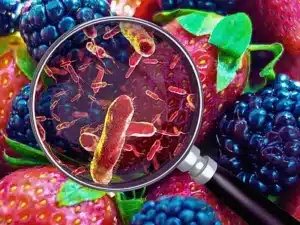New testing indicates that nearly half of all food packaging from popular fast-food chains contains toxic chemicals known as per- and polyfluoroalkyl substances (PFAS), which are known to threaten human health. Since food chains know about the dangers of PFAS but choose to use them in packaging anyway, they may be held liable for posing significant threats to the health of consumers, residents, and the environment.
Packaged in Pollution
The new study analyzed packaging from popular food chains, including fast-food chains McDonald’s, Wendy’s, and Burger King, and health-minded food chains Freshii, Cava, and Sweetgreen. The testing included 29 unique food packaging samples from 3 states and 6 chains. Toxic PFAS were found in Burger King’s “whopper” wrapper, McDonald’s “Big Mac” container, and all salad bowls from health-conscious chains. Bags used for sides such as fries, cookies, and chicken nuggets also tested positive.
What Are Per- and Polyfluoroalkyl Substances (PFAS)
PFAS are chemicals made up of a combination of carbon and fluorine atoms. Food wrappers and containers are loaded with PFAS because they’re great at making materials water- and grease-resistant. They stop the packaging from getting soggy and greasy. Foods that contain a lot of grease are prime candidates for packaging made containing PFAS. These chemicals are also used in carpeting, cleaning products, upholstery, non-stick cookware, floor waxes, apparel, furniture, cell phones, infection-resistant surgical gowns and drapes, and semi-conductors. PFAS help make these products resistant to stains, grease, and water damage.
PFAS present in food containers and wrappers are part of the new generation made with 4- or 6- carbon chains, which are replacements of the rejected 8-carbon chain perfluorooctane sulfonate (PFOS) and perfluorooctanoic acid (PFOA).
Health Dangers of PFAS
PFAS can do significant harm to the body and the environment. PFAS exposure is known to contribute to a variety of diseases and disorders, including cancer, liver damage, autoimmune disorders, and endocrine disruptions. The chemicals are also linked to reproductive, developmental, brain, and immune health issues. Even low-level exposure to PFAS could be unsafe for humans.
Due to their chemical composition, PFAS are resistant to typical environmental degradation. They are known as “forever chemicals”. The chemicals remain in the environment for long periods of time and contaminate food, air, soil, and water. There are better packaging options that are PFAS-free, but food chains still prefer toxic packaging, leaving consumers and the environment at risk. Personal injury claims for PFAS contamination against food chains may be filed.




